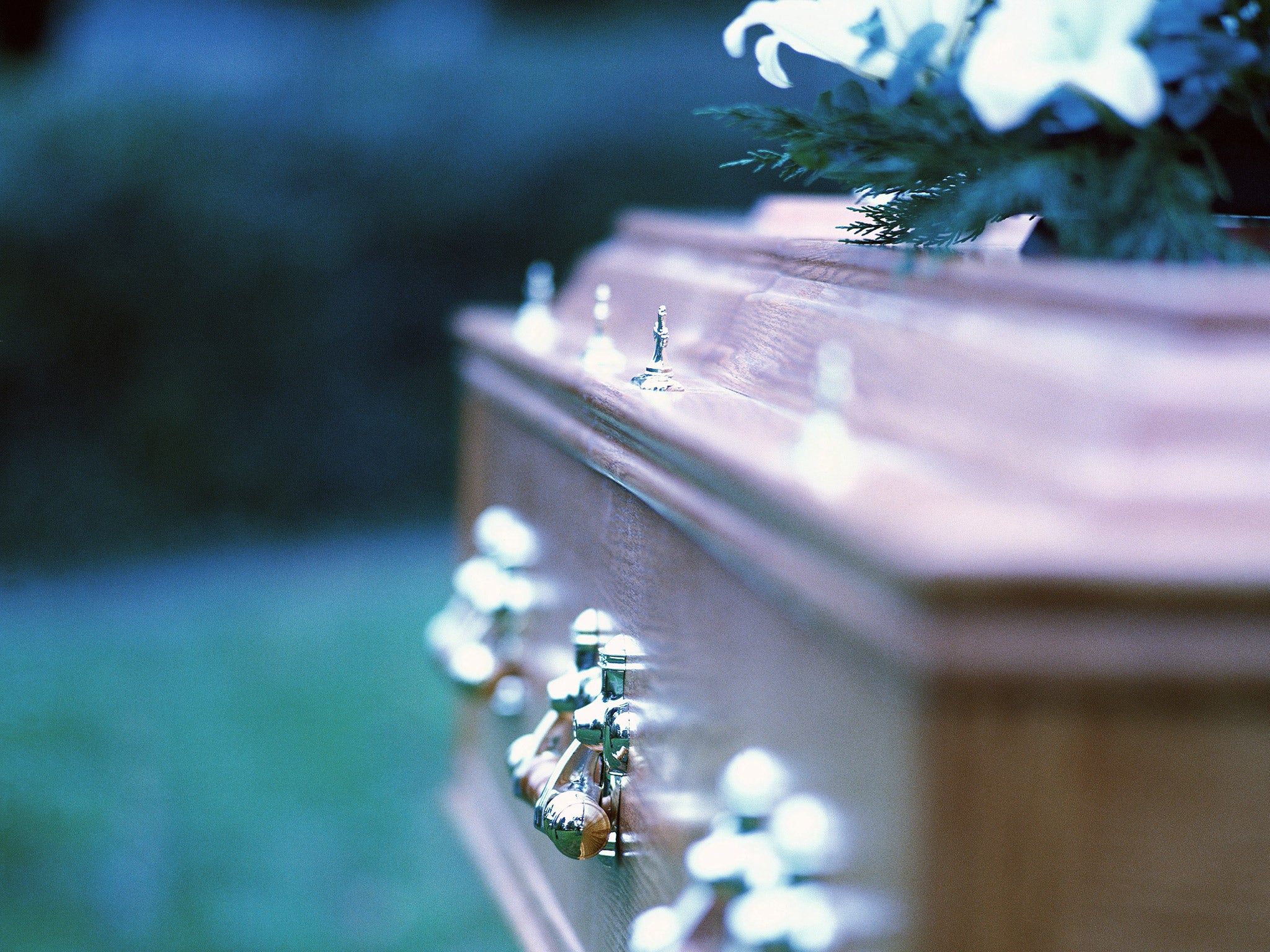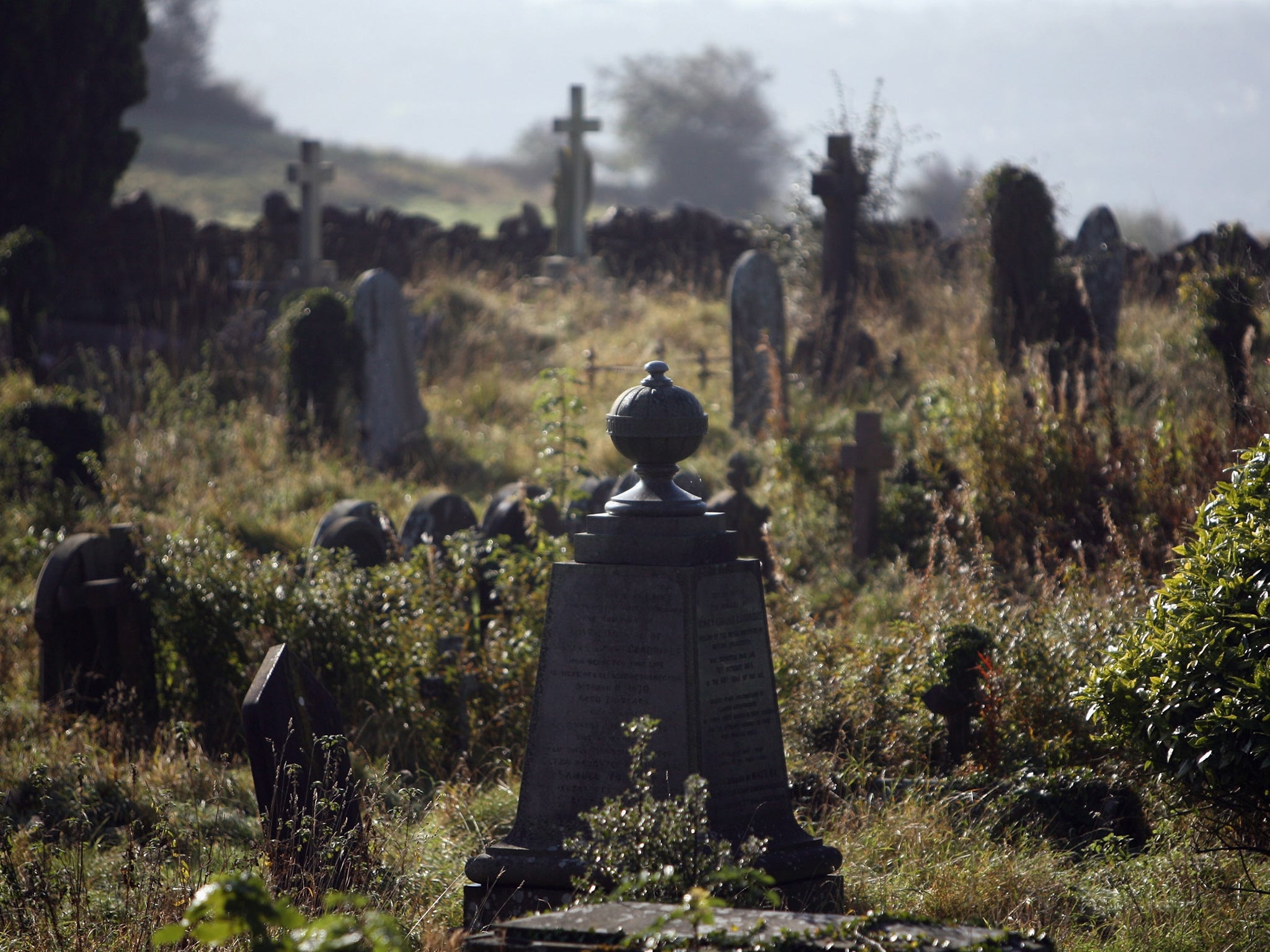These are the strangest things I've seen as a funeral director
As well as the most surprisingly common requests, and what the public doesn't know

Your support helps us to tell the story
From reproductive rights to climate change to Big Tech, The Independent is on the ground when the story is developing. Whether it's investigating the financials of Elon Musk's pro-Trump PAC or producing our latest documentary, 'The A Word', which shines a light on the American women fighting for reproductive rights, we know how important it is to parse out the facts from the messaging.
At such a critical moment in US history, we need reporters on the ground. Your donation allows us to keep sending journalists to speak to both sides of the story.
The Independent is trusted by Americans across the entire political spectrum. And unlike many other quality news outlets, we choose not to lock Americans out of our reporting and analysis with paywalls. We believe quality journalism should be available to everyone, paid for by those who can afford it.
Your support makes all the difference.Research from a funeral cars company recently revealed that an airport fire engine, a Scooby Doo van and a Del Boy style three-wheeled hearse were amongst the most unusual modes of funeral transport encountered by funeral directors during the course of their work. Ian Brewerton is a funeral director at C.J. Williams funeral directors of Telford and has more than 30 years of experience within the profession.
How I ended up in the profession
It was a gradual progression rather than necessarily a set career path. The progression started at a young age. My father was a policeman and it was sat around the dinner table that I realised life wasn’t all beer and skittles.
Initially I started as a gravedigger, before moving into the crematorium as a technician. This was a wonderful apprenticeship as it enabled me to observe the conduct of the best funeral directors - the principal one being the late Mr Christopher Williams, of Telford. This put me in a position to learn from the cream of the profession. From here an opportunity arose and, realising it was the right time, I took it.
People often ask me how I can do my job, but I think they probably focus upon the depth of distress that we witness. I think that, over time, you develop a personal strength of character underpinned by experience, knowledge, and a desire to help those who have lost someone. Funeral directors are people orientated first and foremost. We see all of human life and serve everyone and anyone. The variety of people that we meet is a delightful aspect of our work. The funeral might be about the deceased but it’s for the family and there’s an enormous amount of satisfaction in providing the service to the highest standard.
The strangest things I’ve come across

We do receive unusual requests from time to time and I have two amusing ones that spring to mind.
A gentleman approached me one day and said: ‘I want to be buried in my gun cabinet. Can it be done?’ As it was an unusual request I had to ring the local authority to determine if this was possible and, following a conversation, established that yes, provided it fitted certain criteria including having handles and didn’t encroach on other graves then it shouldn’t be a problem. He said ‘Well there is one problem, my wife doesn’t want that at all.’ We then both concluded that she needed to ‘go first’ if it was to happen. But, statistically speaking, this was against the odds!
The other involved a lady who came in and wanted to discuss a DIY funeral. After asking a few questions I enquired as to whom the funeral was for. ‘Me’, she said. Seeing the potential challenges of this I looked to establish if she had any children. ‘Yes,’ she said. ‘But they couldn’t face doing it.’ I pointed out the pitfall that if they couldn’t face it, then it would certainly be a tricky proposition with her no longer being around to help. There was a sudden look of comprehension as she said: ‘Oh my goodness, I’ve been such a fool – of course! But it’s been nice talking with you’.
The commonest requests
It’s an extremely varied and interesting profession. No two days are the same, indeed, no two funeral services are the same. The sheer variety of requests is down to the sheer variety of people we interact with.
In effect it’s our job to make an awful situation seem quite normal. Anything you read in the papers has the potential to walk through your door, which means you have to be prepared for all eventualities. Sometimes you might be conducting what you could consider an average funeral in the morning, but then the afternoon could be a military funeral with full honours. You can go from just the clergy and funeral staff on the one hand, to a service with several hundred people, British legion regalia, a piper or a jazz band, on the other.
There’s a huge range of funeral vehicles available. At C J Williams, Telford, we have a large fleet of Jaguar ceremonial vehicles, all provided by Wilcox Limousines, but if needs be we can organise transport for a farmer on a tractor-trailer, or an HGV driver on our own flatbed lorry and a biker on a Harley Davidson hearse. We are always accommodating of people’s wishes. Almost anything is possible.
The type of funeral is also evolving. A rough estimate is that it’s currently an 80/20 split in favour of cremation, but that depends on a number of factors, not least regarding where you live in terms of available burial space. The type of ceremony can be quite different too. 25 years ago we predominantly handled Anglican, Catholic and Free Church ceremonies, along with the occasional Humanist funeral, with no mention of religion. But Civil Ceremonies are becoming more and more popular, which tend to focus on the life of the deceased person, yet may still include some religious references – such as a hymn or The Lord’s Prayer.
Funerals are essentially variations on a theme, with the core being the burial or cremation element, but the periphery around this allows for boundless variety.

What the public doesn’t know
There’s a lot to take into consideration that the public might not necessarily know about, or at least have thought about.
The amount of organisation that’s required can sometimes be underestimated. We liaise with a huge range of professions such as clergy, celebrants, registrars, printers, florists, caterers, musicians, mortuary staff, the coroner’s office, dove handlers, horse drawn carriage masters, and so on. It’s our job to ensure that everything runs smoothly.
Sometimes we can be repatriating a person home from abroad and sometimes the repatriation is from the UK. We even organise the occasional exhumation, although this is a rarity.
Funerals are a lot more technical now and you simply have to get it right. Music is a fine example; being increasingly diverse and more secular. Gone are the days of the organist providing all of the musical content – many families want to personalise the ceremony and hear some of the deceased’s favourite songs and tunes. Most crematoria provide an on-line system whereby this is made possible, and dependable – no more sub-standard tapes and CDs! These systems allow the family to listen to the music in advance, ensuring the right artist, or orchestra, and all played in the appropriate order.
The work of a funeral director can be demanding (we provide a 24/7 service) but, if you’re doing it right, it’s a vocation. It is a total privilege and, although it might sound strange, a total joy to be involved in what is considered a noble profession. There’s nothing more rewarding than shaking hands with the family at the end of the service and seeing the appreciation in their eyes for a job well done, which is fundamental to them.
Join our commenting forum
Join thought-provoking conversations, follow other Independent readers and see their replies
Comments